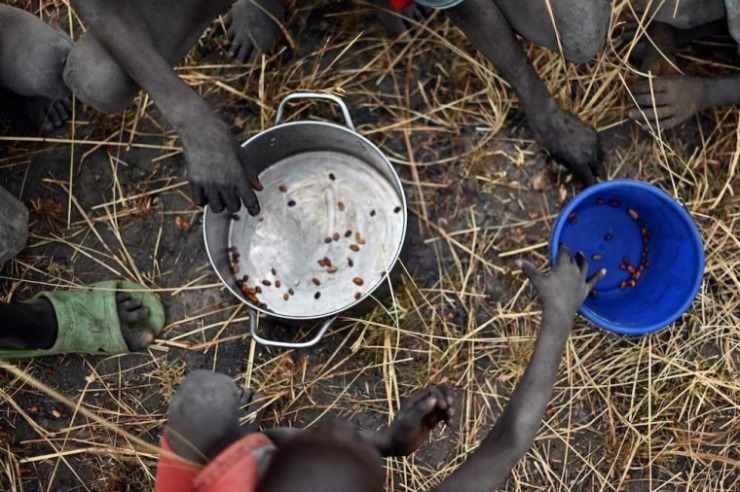
An estimated 300,000 people could begin starving to death daily in "multiple famines of biblical proportions" within months amid the coronavirus pandemic, warned head of the World Food Program David Beasley.
Describing the coronavirus pandemic as "the worst humanitarian crisis since World War II" in a presentation to the United Nations Security Council Tuesday, Beasley warned that the number of people suffering from hunger could go from 135 million to more than 250 million and urgent action was needed, especially when it comes to vulnerable populations in conflict-driven countries.
"If we can't reach these people with the life-saving assistance they need, our analysis shows that 300,000 people could starve to death every single day over a three-month period," Beasley said.
He requested $350 million in new funding to set up a network of logistics hubs to keep worldwide humanitarian supply chains moving while urging warring factions in conflict-driven countries to allow them to serve people at risk of hunger.
"If we don't prepare and act now — to secure access, avoid funding shortfalls and disruptions to trade — we could be facing multiple famines of biblical proportions within a short few months," he said.
The Global Report on Food Crises 2020, a consensus-based assessment of acute food insecurity situations around the world by 16 partner organizations, noted that the 135 million people recorded in 2019 as suffering from hunger was the highest in the four years since the report was first published. The current situation, the report notes, is likely to be much worse as it did not factor in the shock of the coronavirus pandemic.
"The acute food insecurity forecasts for 2020 were produced before COVID-19 became a pandemic and do not account for its likely impact in food crisis countries," the report said.
While conflict was reported as the main driver of food insecurity in 2019, weather extremes and economic shocks were also noted as significant.
More than half of the 77 million acutely food insecure people in countries where conflict was identified as the primary driver were in the Middle East and Asia. Africa was reported as having the largest numbers of acutely food-insecure people in need of assistance in countries badly affected by weather events, particularly in the Horn of Africa and Southern Africa, followed by Central America and Pakistan.
"While COVID-19 does not discriminate, the 55 countries and territories that are home to 135 million acutely food-insecure people in need of urgent humanitarian food and nutrition assistance are the most vulnerable to the consequences of this pandemic as they have very limited or no capacity to cope with either the health or socioeconomic aspects of the shock," the report noted.
"These countries may face an excruciating trade-off between saving lives or livelihoods or, in a worst-case scenario, saving people from the corona virus to have them die from hunger. To prevent these tens of millions of people already facing food crises from succumbing to the virus or to its economic consequences, all actors need to mobilize and coordinate along a set of operational and strategic priorities."
In an interview with the BBC, Beasley who recently recovered from the coronavirus, said an estimated 30 million people could die in a matter of months if the U.N. did not secure more food and funding.
WFP's senior economist, Arif Husain, said, "It is a hammer blow for millions more who can only eat if they earn a wage." He added that the economic impact of the coronavirus pandemic was potentially catastrophic for millions "who are already hanging by a thread."
"Lockdowns and global economic recession have already decimated their nest eggs. It only takes one more shock — like Covid-19 — to push them over the edge. We must collectively act now to mitigate the impact of this global catastrophe," he said.
Courtesy of The Christian Post.




